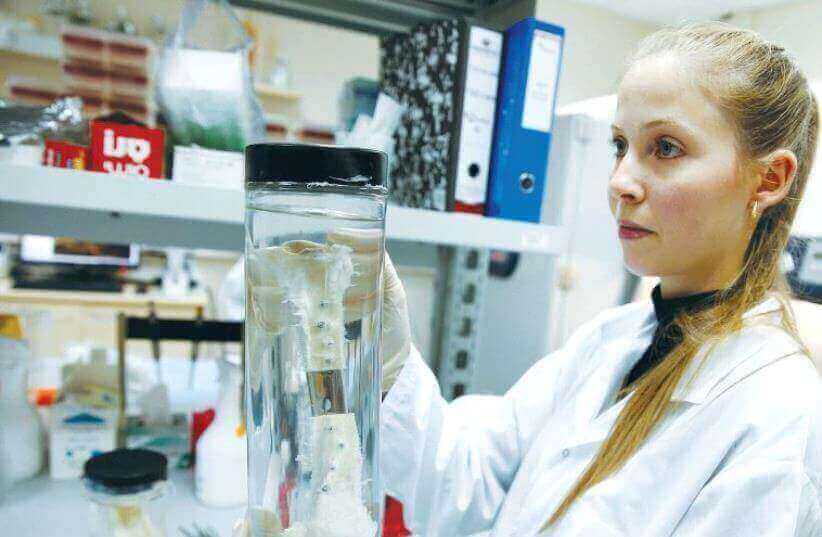
The study is expected to lead to a deeper understanding of biological processes, as well as developments that will allow for an early diagnosis of a variety of diseases
Article published at www.jpost.com on July 4, 2021.

Israeli Technion researchers, in collaboration with international partners, have reached a breakthrough in identifying the genetic profiles of single cells, according to a paper published in the journal Nature Methods last month.
The paper follows SMPS19 (Single-Molecule Proteins Sequencing), an international conference held in Jerusalem in 2019 organized by Prof. Amit Meller of the Technion’s Faculty of Biomedical Engineering.
In the paper, the researchers discuss the developments made in technologies aimed at decoding the protein profile of single cells. They also described future protein sequencing technologies and identification on the individual molecular level.
An example of such technologies being developed at the Technion’s ILaboratory involves nanometric sensors, which allow the direct sensing of individual proteins. Labelled with fluorescent dyes, the proteins flow through the sensors and the optical signals are analyzed by a deep learning-based system, which has also been developed in the Technion lab.
The study, which has been supported by the European Union, the Israeli Science Foundation and the Azrieli Fellowship Program, is expected to lead to a deeper understanding of biological processes, as well as the development of highly sensitive medical tests that will allow for an early diagnosis of a variety of diseases.
The collaborative study was led by Meller, along with Prof. Chirlmin Joo of the Netherland’s Delft University and Dr. Javier Alfaro of Poland’s Gdansk University.
